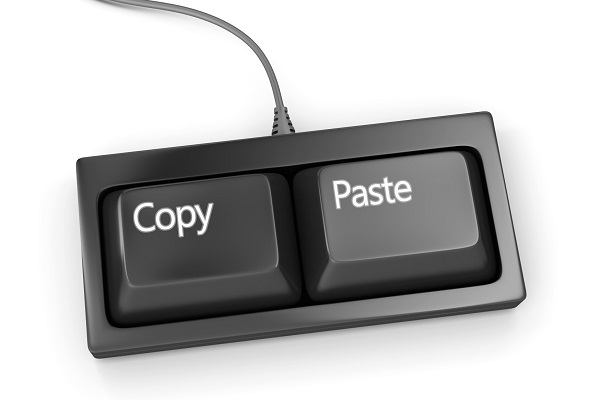Urgh! Working on a university assignment can be really stressful, especially during the weekend when you have loads of other schedules to handle.
Even on weekdays, too! Sometimes, the pressure might get really high and lead you to consider copying someone else’s work, but before you copy, have you considered what happens if you get caught plagiarising at a UK university?
This isn’t just about getting into trouble, even though there might be very huge consequences for that. The main point is about protecting your academic journey and the hard work you’ve put in all these years.
Well, just before you hit the copy button, read this article first to find out what happens when you copy someone else’s work and how the universities in UK handle plagiarism.
Table of contents
What is Plagiarism?
Using or claiming someone else’s ideas, words, or work without giving them proper credit or acknowledgment is termed plagiarism.
It involves presenting someone else’s work as your own, whether copying and pasting directly from a source, paraphrasing their content without proper citation, or even submitting your previous work as if it’s new and original.
Plagiarism is considered a breach of academic and intellectual integrity, as it undermines the principles of honesty, originality, and proper attribution in writing and research.
Read Also: Top 10 Grammar Schools in London
How is Plagiarism Detected in UK Universities
With the advancement of technology, detecting plagiarism in the UK is now a walk in the park. Before now, it was a herculean task for professors and teachers to affirm a work was copied.
Once they suspect a work was copied, they would run your work against advanced plagiarism software.
As a student in the UK, you must prioritize maintaining academic integrity. If you get caught plagiarizing in a UK university, it will greatly affect your integrity as an international student. Detecting plagiarism in your work is one way to lose your professor’s trust.
Your citation can also give you away. You must engage in ethical writing practices to avoid the severe consequences of plagiarism.
Below are some ways your professors can detect plagiarism in your work:
Read Also: Graduation in England: How Does It Work for International Students?
#1. Plagiarism Detection Software:
Many UK universities use specialized plagiarism detection software, such as Turnitin or Grammarly, which compare submitted documents to an extensive academic and online content database.
These tools highlight any similarities found in the text, indicating potential cases of plagiarism.
#2. Text Comparison
Educators and researchers can manually compare suspicious sections of a document with known sources using search engines, academic databases, and other online resources. This will identify potential instances of plagiarism.
#3. Peer Review
In collaborative projects or cases where professors are familiar with a student’s writing style, they might notice discrepancies or similarities in writing that raise suspicion and warrant further investigation.
#4. Subject Knowledge
Professors and instructors are usually experts in your field. This way, they can recognize student work inconsistencies that suggest they’ve copied from sources without proper understanding.
#5. Inconsistent Language Usage
Sudden shifts in writing style, vocabulary, or complexity within a piece might indicate that sections have been copied from different sources.
#6. Citation Analysis
Educators can identify if the cited sources support the presented content by examining the citations and references provided in a document. Experienced educators often deeply understand key texts and sources in their field.
If a student’s work seems to be directly copied from these sources without proper citation, it can be a red flag.
#7. Database Checks
Universities maintain databases of past student work. Comparing current submissions with these databases can help identify instances of self-plagiarism or recycling of old material.
Read Also: When Do University Starts in UK? University Terms and Academic Calendar 2024-2025
What Happens if You Get Caught Plagiarising in a UK University?
The degree of punishment you receive when caught depends on the professor or teacher. Also, the university’s policies influence what happens if you get caught plagiarizing in a UK university.
You may receive mild punishment like re-writing an assignment if caught plagiarising in the UK or severe punishment like being expelled.
One or many of the following may happen if you plagiarise in a UK university.
Academic Penalties
When caught plagiarising, students may face severe academic penalties. These can range from receiving a failing grade for the assignment to failing the entire course. In more serious cases, students might be expelled from the university.
Damage to Reputation
Plagiarism can tarnish your academic reputation. It erodes educators’ trust in their students and can make it difficult to secure references for future endeavors.
Legal Implications
Plagiarism can have legal consequences, as it infringes upon intellectual property rights. While not all cases result in legal action, it’s important to recognize that intellectual property violations are taken seriously in the UK.
| Level of plagiarism | Examples | Likely consequence |
|---|---|---|
| Mild | Text copied from a source with a few words changed and paraphrased without citation | Grade penalty or automatic zero |
| Moderate | Patchwork of different texts passed off as originalPaper written by someone else. | Failing grade on course |
| Severe | Text copied from a source with a few words changed and paraphrased without citation. | Academic probation or expulsion |
Also, read: What Happens If You Are Caught Cheating in a University Exam?
How Do I Avoid Plagiarism in a UK University?
Avoiding plagiarism in a UK university requires a strong commitment to ethical writing and proper citation practices.
Following these steps and maintaining a commitment to ethical writing practices can help you avoid plagiarism and uphold the integrity of your academic work in a UK university.
- Understand the Guidelines: Familiarize yourself with your university’s plagiarism policies, citation styles (such as Harvard referencing), and any specific assignment guidelines. This will help you know what is expected and how to avoid unintentional plagiarism.
- Take Detailed Notes: When researching, jot down key points and ideas in your own words. This will help you internalize the material and reduce the likelihood of accidentally copying phrasing.
- Use Quotations and Paraphrasing: When quoting a source, use quotation marks and provide proper attribution. When paraphrasing, rephrase the content in your own words and cite the source. Remember that paraphrased content still requires citation.
- Cite Everything: Any information, data, statistics, ideas, or concepts not your own must be cited. This includes text and visual content like images, diagrams, and charts.
- Use Reference Management Tools: Use reference management software like Zotero, EndNote, or Mendeley to organize your sources and generate accurate citations.
- Proofread and Edit: After writing, review your work to ensure that you’ve properly cited all sources and that your writing is clear and cohesive.
- Ask for Feedback: Share your work with peers, professors, or writing tutors for feedback. They can help you identify any areas needing improvement or proper citation.
- Self-Check for Plagiarism: Before submitting your work, use online plagiarism detection tools to ensure your content is original and properly cited.
- Maintain Originality: Each assignment is an opportunity to showcase your understanding and perspective. Aim to contribute new insights rather than reproducing existing content.
Read Also: What Percentage of Master’s Students Get a Distinction in the UK?
Consequences for the College Due to Student Plagiarism
What happens if you get caught plagiarising in a UK University cuts across the effect on you and the effect on the college.
Consequences for the college due to student plagiarism range from damage to the college’s reputation to more extreme situations.
Here are some of the consequences that colleges may face due to student plagiarism:
- Damage to Reputation: Colleges pride themselves on maintaining high education standards and academic honesty. Instances of widespread or repeated plagiarism can damage the institution’s reputation, making it appear less credible and reliable to prospective students, parents, faculty, and the broader academic community.
- Loss of Credibility: Plagiarism undermines the credibility of the degrees and qualifications awarded by the college. Employers, graduate schools, and other institutions may question the value of degrees from an institution with a reputation for lax academic standards.
- Decline in Academic Quality: Plagiarism reflects a lack of commitment to learning and critical thinking. If plagiarism becomes prevalent, the overall academic quality of the institution could decline, affecting the value of the education provided.
- Legal Ramifications: In some cases, if an institution is found to have not taken sufficient action against plagiarism, it could face legal challenges from students or other affected parties. They may claim they received a subpar education due to the lack of enforcement of academic integrity.
- Accreditation Concerns: Accrediting bodies evaluate institutions based on various criteria, including academic integrity. Repeated instances of plagiarism might lead to scrutiny from accrediting agencies, potentially jeopardizing the institution’s accreditation status.
Top Plagiarism Software in The UK
Using a reputable plagiarism checker can help maintain academic integrity and ensure that your work meets the high standards expected in UK educational institutions.
Plagiarism software has its own set of features, pricing plans, and usability. Before getting one, you should consider factors such as the size of a plagiarism database, the types of sources it scans, and the accuracy of its results.
#1. Turnitin
Turnitin is one of UK universities’ most popular plagiarism detection tools. It compares submitted documents against a vast academic and online content database to identify similarities and potential instances of plagiarism.
#2. Grammarly
While known primarily as a grammar and writing enhancement tool, Grammarly also offers a plagiarism checker feature.
It scans text for similarities and provides detailed reports on potential issues.
#3. Copyscape
Copyscape is a web-based plagiarism checker that scans the internet for duplicate content.
It’s often used by writers, bloggers, and website owners to ensure the uniqueness of their online content.
#4. Plagscan
Plagscan offers a comprehensive plagiarism detection solution that checks documents against academic databases, journals, and web content. It provides detailed reports and similarity percentages.
#5. Viper
Viper is a free plagiarism checker that scans submitted documents against a large database of academic papers and online content to identify potential matches.
#6. Plagramme
Plagramme offers real-time plagiarism checking and various subscription plans for individuals, students, and institutions.
#7. Quetext
Quetext provides an easy-to-use plagiarism detection tool that helps users identify copied content and ensure the originality of their work.
FAQs
Accidental plagiarism is still a breach of academic integrity, though universities might handle it differently based on intent.
Most universities have writing centers or online guides that provide information on citation styles and academic writing techniques.
While Wikipedia can provide an overview, using more reliable sources in academic writing is recommended.
Conclusion
If you’re caught plagiarising in a UK university, it could lead to severe consequences that can negatively impact your academic and personal standing.
Understanding the importance of originality and proper citation is crucial, not only to avoid penalties but also to uphold the principles of intellectual integrity.
References
- Scribbr.com – Consequences of Mild, Moderate & Severe Plagiarism
- Think student.co.uk – What Happens if You Get Caught Plagiarising in University?
- Scan My Essay.com – Consequences Of Plagiarism
Recommendations
- How Long Does it Take to Transfer Schools in the UK: A Guide for Parents
- What Happens if Your Teenage Child Refuses to Go to School in the UK?
- What Happens When You Don’t Go To School in the UK?
- Is University Higher Education or Further Education in UK?
- How Many Years of Student Finance Can You Get in the UK?
- What is a Foundation Degree Equivalent To in the UK?
- What is a Diploma in the UK?



